I Was Today Years Old When I Learned This Common Phrase Was Invented By "SNL," And It's Got Twitter Realllll Confused
If there's one thing to know about me, it's that I loooove Saturday Night Live. From being a part-time encyclopedia of behind-the-scenes facts to frequently having camped out for tickets to the show in my early 20s, I like to think I'm pretty ~in the know~ about it. Well, this week I scrolled past a tweet about the show that stopped me in my tracks and had me thinking...surely that can't be........right?
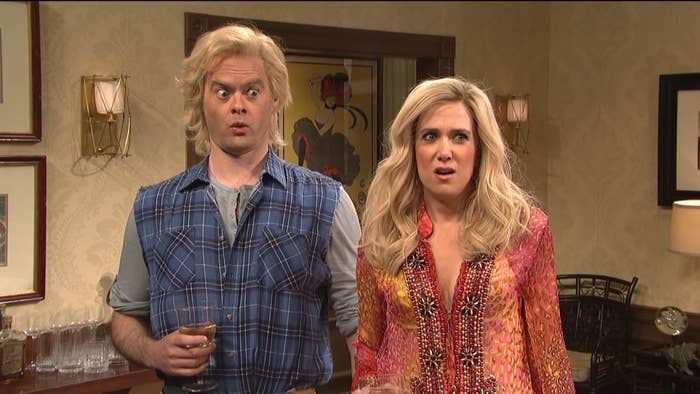
The tweet in question was posted by Twitter (or X, technically) user @noahpasaran, who was shocked to discover that the term "Debbie Downer" actually originated from the SNL sketch of the same name, rather than the sketch relying on a pre-existing phrase like I (and probably most of you) assumed.
finding out the term “Debbie downer” was coined on SNL is one of those real facts that do not seem congruent with the world
— holden m. accountable (@noahpasaran) March 2, 2024
In case you're not familiar, "Debbie Downer" is a recurring sketch on SNL, with cast member Rachel Dratch playing the titular character. Debbie Downer is essentially the ultimate party pooper who, somehow, is even able to make being at Disney World a miserable experience. The first ever iteration of it aired in May of 2004 in an episode hosted by Lindsay Lohan. It's, in my opinion, one of the show's most iconic sketches, in part because it's so damn funny, but also because half the cast can't make it through it without breaking character and cracking up themselves (which actually makes it 10 times more hilarious).
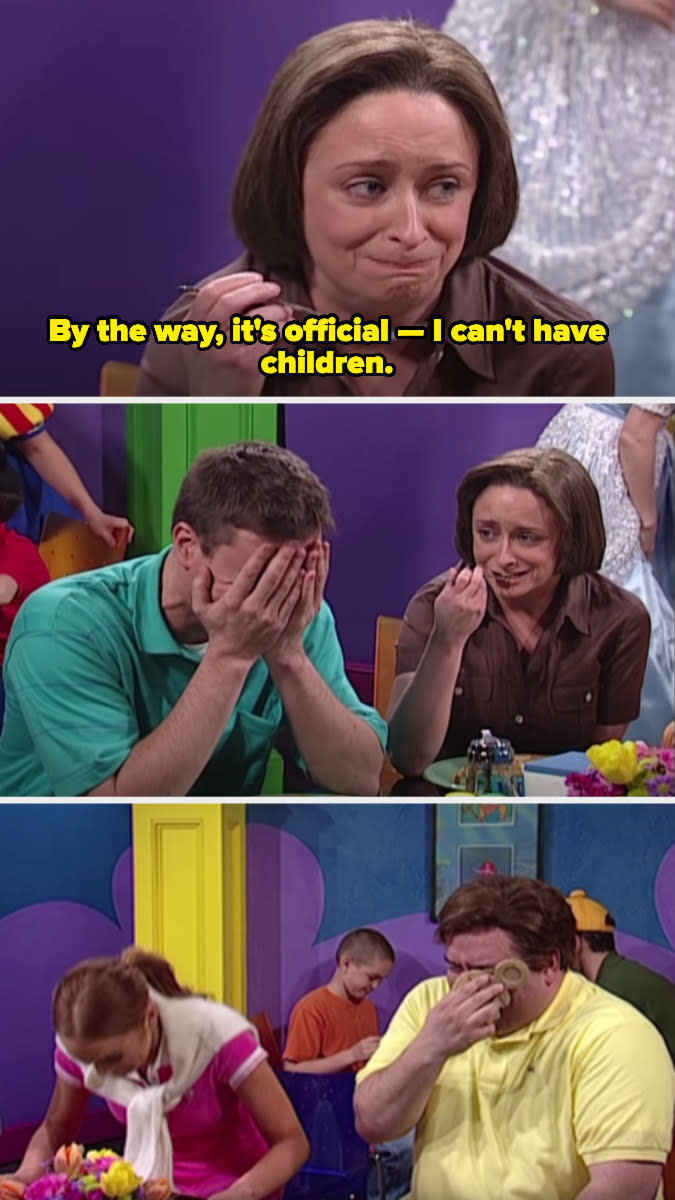
You can watch the sketch for yourself below:
Loads of people in the replies were swearing up and down that they used the term far before 2004, and that there's no way this is where it came from. So, because I am skeptical and nosy, I decided to do a little research. As it turns out, terms like "downer" and "Negative Nancy" had already existed before the sketch, but there is no record of "Debbie Downer" being used prior to the episode's airdate in 2004. That's right, y'all — "Debbie Downer" is no older than a Gen Z'er and is not, in fact, a phrase your grandma said when you were a wee kiddo.
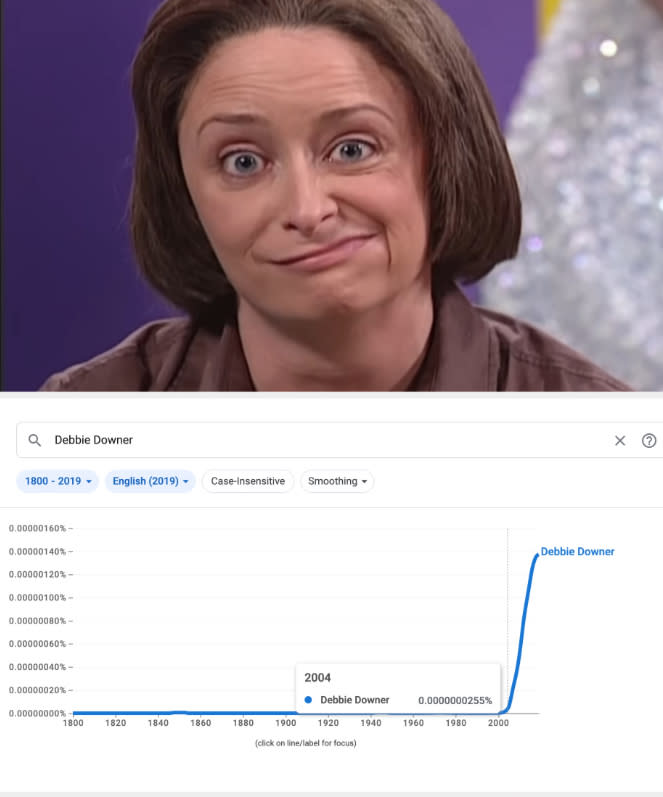
Really, we should be thanking Rachel Dratch here. In an interview with Salon, she revealed that she came up with the idea while on a trip to Costa Rica, where she encountered an IRL Debbie Downer. She elaborated, "I was on a vacation and there was this communal dining table and someone was like, 'Oh, where are you from?' and I said New York, and then they said, 'Were you there for 9/11?' And everything just screeched to a grim halt." And...the rest was history.
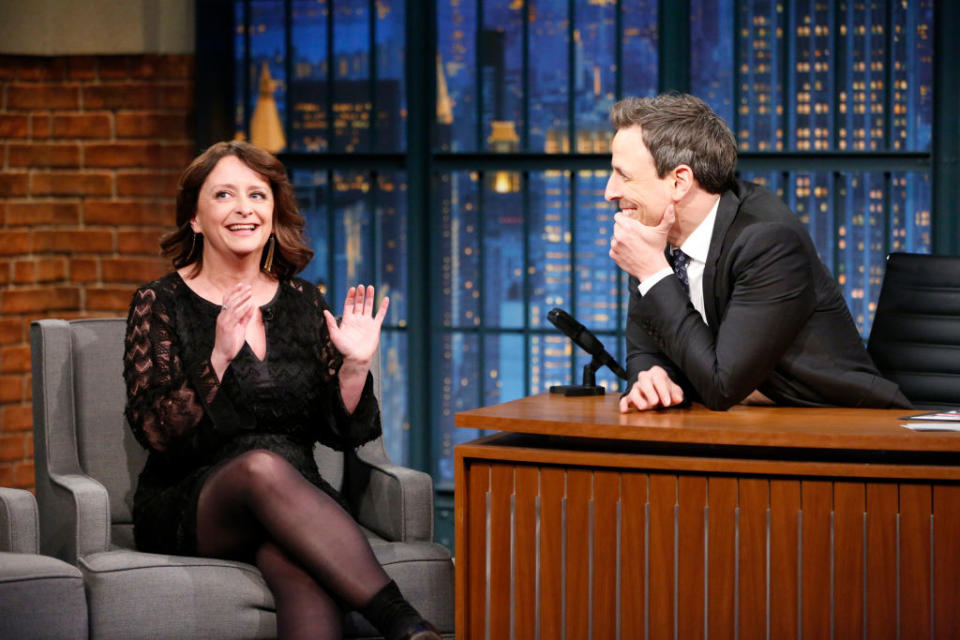
After learning this, several Twitter users took to the thread to share other popular phrases people thought existed way before they did and, similarly, had unexpected origins. For example, @JakeAnbinder pointed out that the term "bucket list" came from the movie The Bucket List and was coined by screenwriter Justin Zackham in 2007.
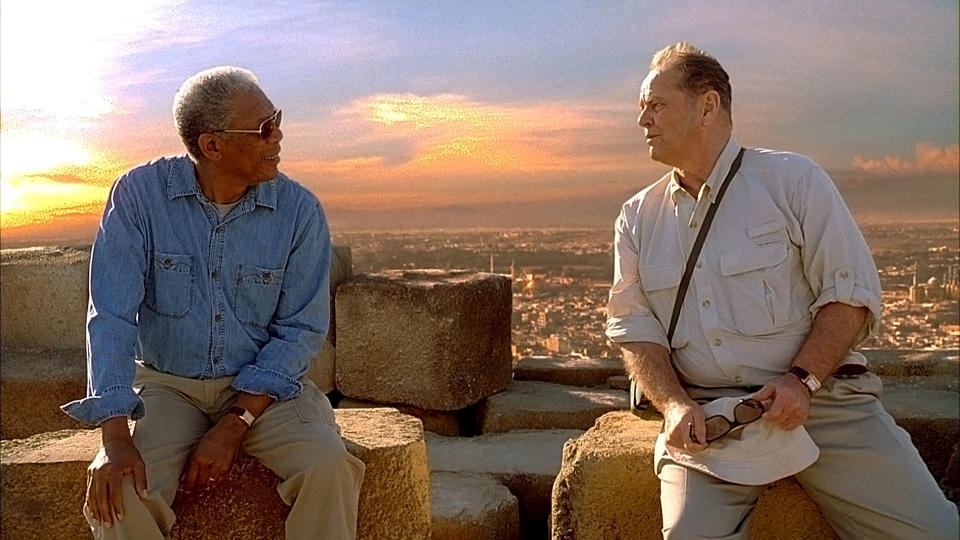
While the term ~technically~ existed prior to the film, it had a different meaning. The film, which follows two men with terminal cancer who set off to fulfill their "before we kick the bucket" lists, originated the term being used to describe a list of things someone wants to do before they die.
User @zedonarrival noted that the term "wardrobe malfunction" originated when Justin Timberlake used the term in 2004 during his public statement about Janet Jackson's malfunction during their Super Bowl XXXVIII halftime show.
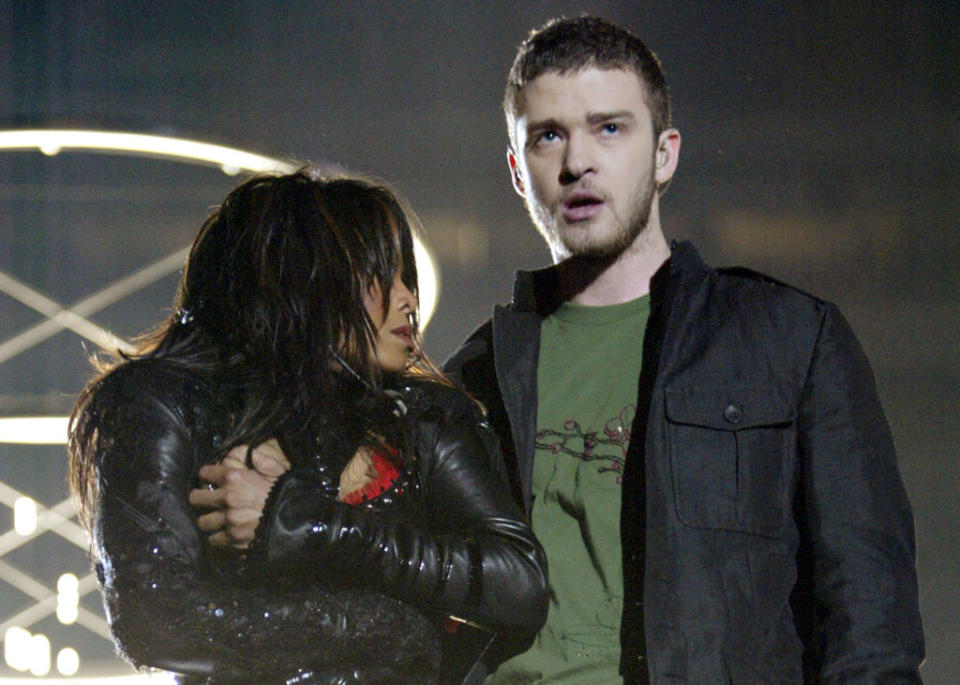
You can read more about it here.
Twitter user @ecto_fun shared that the name for the "mullet" hairstyle originated in 1994 and is credited to the Beastie Boys and their song “Mullet Head." While the hairstyle certainly existed before then, Oxford English Dictionary credits the band for the name.

@GarlicCorgi pointed out that the popular internet phrase "saying the quiet part out loud" comes from The Simpsons, dating back to a 1995 episode. In it, Krusty the Clown says, "Let's just say it moved me…to a bigger house! Oops! I said the loud part quiet and the quiet part loud!" The phrase gained popularity on Twitter — and transformed into "the quiet part out loud" in the 2010s...and here we are!
And finally, the fandom term "shipping," which is used when fans want two people or characters to get into a relationship, exists thanks to X-Files fans just really, really wanting Mulder and Scully to get together in 1994.
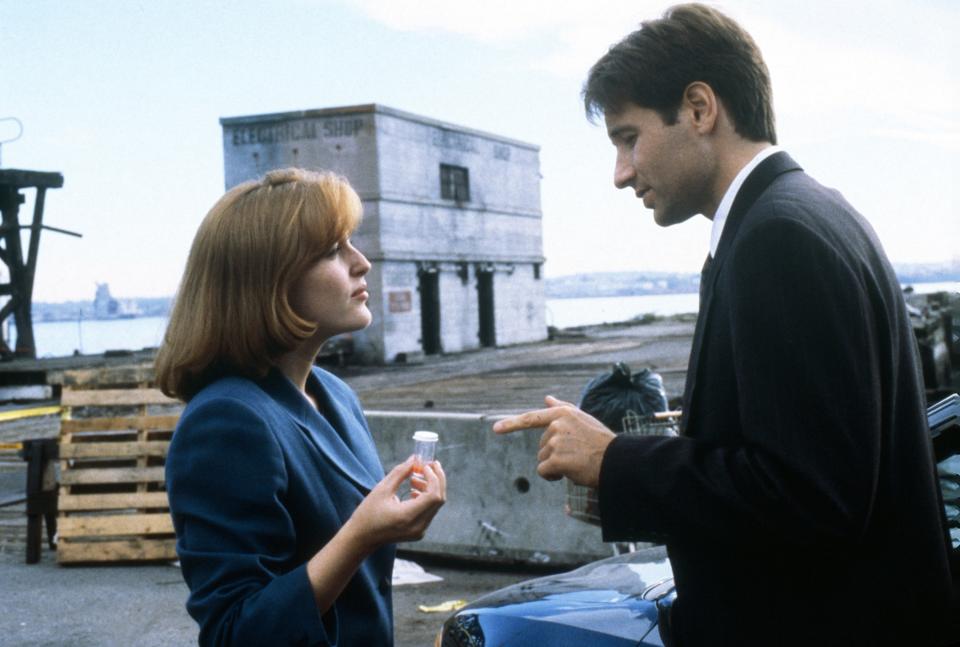
Imagine being an iconic enough duo that people literally invent a new word for how much they want you together. Next level if you ask me!
It's wild how so many of these phrases we just assumed have been around forever are only, like, 20-something years old, huh? Well, I hope you, like me, learned a thing or two today!
Do you know of a word or phrase with an unexpected origin? If so, we'd love to hear about it in the comments below!

